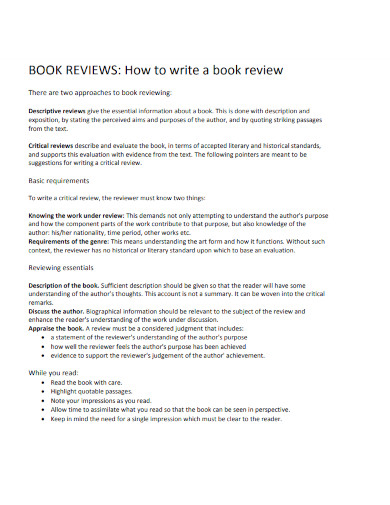Writing a book review can be an exhilarating journey, akin to diving into the depths of a fascinating story or embarking on an exploration of a thought-provoking concept. It allows you to engage with the text, distilling its essence while sharing insights that can resonate with fellow readers. In this guide, we will traverse the landscape of book reviewing, providing you with a comprehensive framework and techniques to craft your own engaging critiques. Get ready to shift your perspective and ignite your curiosity!
To commence our adventure into the world of book reviews, it is vital to recognize the multifaceted nature of literature. Each book is a universe unto itself, a tapestry woven from the threads of narrative, character development, thematic depth, and stylistic choices. As you prepare to write your review, it is essential to engage with the text on multiple dimensions. This approach promises not only a richer understanding but also an enthralling reading experience for your audience.
First and foremost, develop your analytical lens before you even open the book. What kind of narrative structure does it employ? Is it linear, fragmented, or perhaps circular? Such questions set the stage for your examination, compelling you to delve deeper into the author’s intentions. Take notes as you read to capture your initial impressions and key points. This preparatory phase is crucial; it lays the foundation for an insightful and cohesive review.
Once you finish the text, step back and reflect. What emotions did it evoke? Did it challenge your perspectives or reinforce them? This introspection will be instrumental in shaping the core message of your review. The aim here is not merely to summarize the plot, but to convey the impact the narrative has on the reader. This is where you can promise a shift in perspective, enticing your audience to view the book through your lens.
Your review should begin with an engaging introduction that captures the essence of the book while piquing curiosity. Consider employing a provocative question or an intriguing statement. For instance, if reviewing a novel that critiques societal norms, you might start with, “What if the very fabric of our reality was a mere illusion woven by societal expectations?” Such an opener invites readers into an intimate dialogue with your insights.
As we meander into the body of your review, it is essential to dissect the elements that contribute to the work’s potency. Consider devoting paragraphs to the following areas:
- Character Analysis: Characters are the heartbeat of any narrative. Discuss their development throughout the story, their complexities, and how they reflect broader themes. Delve into their motivations, flaws, and transformations. Ask yourself: Did these characters resonate with you? Can their experiences offer broader insights into the human condition?
- Thematic Exploration: Themes are the undercurrents that propel the narrative. Identify the prominent themes in the book and explore how the author illustrates them. Are they universal, and do they transcend the timeline of the story? Analyzing thematic depth can elevate your review by connecting the text to contemporary societal issues.
- Stylistic Choices: The author’s voice, choice of diction, and overall writing style significantly shape the reader’s experience. Delve into how the author’s style complements the narrative. Does it evoke emotion? Does it enhance or detract from the plot? Discuss any unique literary devices employed, such as symbolism, imagery, or foreshadowing, and their impact on the reader.
- Plot Dynamics: Without recapping every detail, offer a concise overview of the plot and its dynamics. What makes the storyline compelling? Address any twists and turns that may catch readers off guard, while ensuring to maintain the intrigue for prospective readers.
As you peel back these layers, don’t shy away from personal anecdotes or reflections. Readers appreciate authenticity, and sharing your connection to the material can deepen their engagement. Perhaps a character’s struggle resonated with your own experiences, or a theme sparked a personal revelation. Allow these moments to shine, as they enhance the relatability of your review.
Concluding your review is as vital as its introduction. Summarize your key points, reinforcing your overall perspective about the book. This is the moment to drive home your promise of a shift in perspective. Encourage readers to reflect on their own views and convey how the book might alter their perception of reality. You could end with a call to action, prompting them to explore the text for themselves in order to reap the insights you’ve articulated.
Remember, a compelling book review does not shy away from depth or complexity. It engages readers in a conversation, inviting them to join in the exploration of ideas and emotions. The analytical approach you’ve employed not only enhances your writing but also cultivates a community of readers eager to connect and share perspectives.
Finally, ensure your review reflects your voice and resonates with your audience. Each written piece is a unique fingerprint, a manifestation of your journey through the world of literature. Embrace this creative endeavor wholeheartedly, and let your passion for reading infuse every word.
Writing a book review is not merely an exercise in critique; it is an invitation to partake in a vibrant dialogue about the narratives that shape our lives. Your insights can encourage others to embark on literary journeys of their own. So, sharpen your quills, unfurl your thoughts, and dive into the exhilarating realm of book reviewing!
